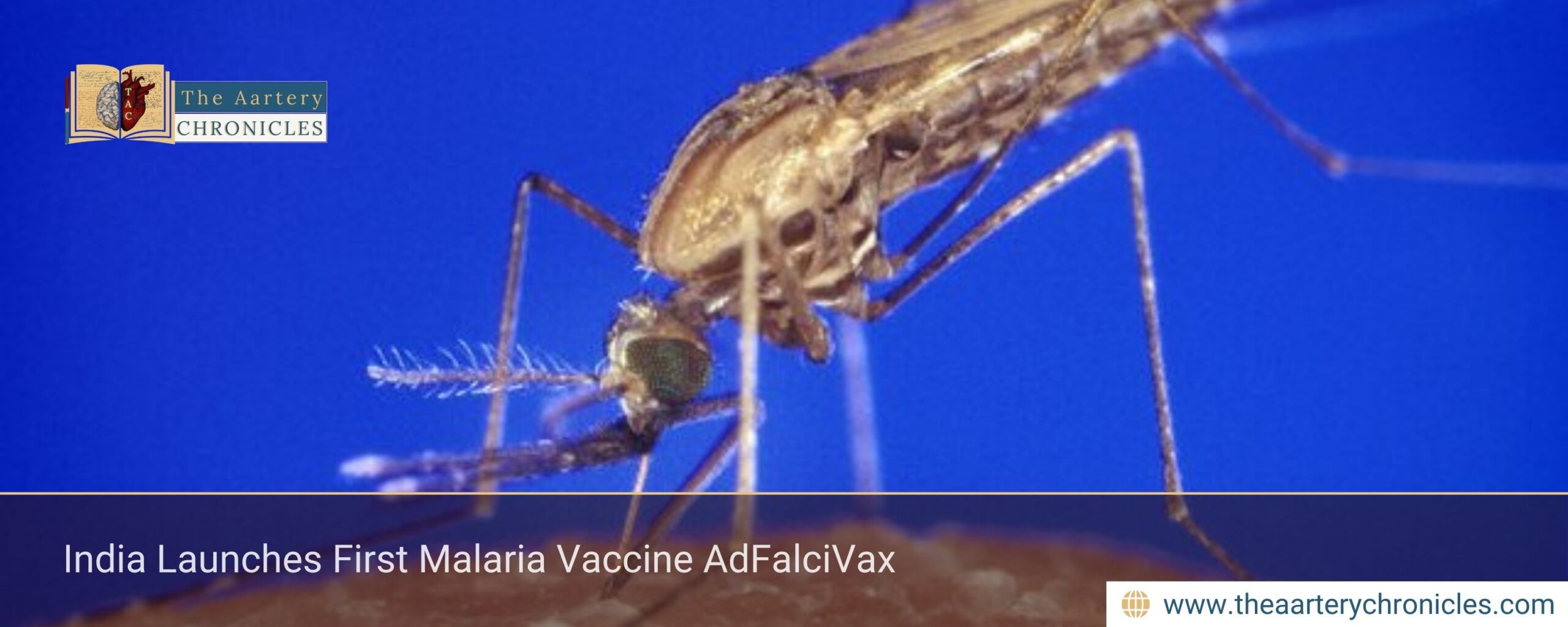

India Launches First Malaria Vaccine AdFalciVax
Malaria has long been one of India’s most persistent health challenges, claiming thousands of lives every year despite advances in treatment and mosquito control. Now, with the launch of India’s first malaria vaccine, AdFalciVax, the country is taking a historic step forward in its decades-long battle against the disease. This scientific achievement could prove to be a game-changer as India works toward eliminating malaria by 2030.
A Landmark in Indian Science
For the first time, India has developed its own malaria vaccine, AdFalciVax, designed specifically to target Plasmodium falciparum, the most deadly strain of the parasite. Created by the Regional Medical Research Centre in Bhubaneswar under the Indian Council of Medical Research (ICMR), the vaccine uses a multi-stage approach to block malaria at two crucial points:
- Before the parasite enters the blood, and
- During the stage that allows mosquitoes to pass the infection from one person to another.
What makes this innovation even more impactful is its stability. AdFalciVax can remain effective for over nine months at normal room temperatures, removing the heavy dependence on cold-chain storage. With ICMR licensing the vaccine technology to multiple Indian pharmaceutical companies, large-scale manufacturing and distribution are already on the horizon.
Malaria in India: Current Status
Although India still faces a heavy malaria burden, the country has made remarkable progress in recent years. According to the World Malaria Report 2024:
- Cases dropped from 6.4 million in 2017 to just 2 million in 2023.
- Deaths reduced from 11,100 in 2017 to 3,500 in 2023.
In 2023 alone, 122 districts reported zero malaria cases a milestone that underscores the effectiveness of national elimination programs. India is on track to eliminate indigenous malaria by 2027, with full eradication expected by 2030 under the National Framework for Malaria Elimination (2016–2030) and the National Strategic Plan for Malaria (2023–2027).
Why Vaccines Matter in Malaria Control
So far, India’s malaria prevention strategies have relied on mosquito nets, insecticide spraying, and effective medicines. While these measures help, they do not fully stop parasite transmission between humans and mosquitoes. Here is where AdFalciVax makes the difference.
The vaccine boosts the body’s immune system to stop infections before they spread, while also cutting down mosquito-to-human transmission. This dual protection reduces the number of new infections, protects vulnerable groups, and lowers the overall burden on hospitals. At a time when drug-resistant parasites and insecticide-resistant mosquitoes are becoming more common, having a vaccine adds a powerful new tool to India’s arsenal.
How AdFalciVax Works
AdFalciVax aims at two critical stages of the parasite’s life cycle:
- Pre-erythrocytic stage – It prevents the parasite from infecting red blood cells, stopping malaria before it causes illness.
- Transmission stage – It blocks parasite development inside mosquitoes, reducing the chances of further spread.
The vaccine is produced using Lactococcus lactis, a safe food-grade bacterium, making it both cost-effective and safe. Its long shelf life at regular temperatures ensures it can reach even the most remote villages without the need for complex cold-chain systems.
Conclusion
The development of India’s first malaria vaccine, AdFalciVax, marks a pivotal moment in public health. When combined with rapid diagnostic tools, timely treatment, and mosquito control, vaccination programs could dramatically accelerate the path to a malaria-free India.
By 2030, India aims not only to reduce malaria cases but to eliminate the disease. AdFalciVax will play a central role in that vision, safeguarding communities, reducing healthcare pressures, and bringing the nation closer than ever to ending one of its most enduring health battles.
Source: Inputs from various media Sources
I’m a pharmacist with a strong background in health sciences. I hold a BSc from Delhi University and a pharmacy degree from PDM University. I write articles and daily health news while interviewing doctors to bring you the latest insights. In my free time, you’ll find me at the gym or lost in a sci-fi novel.
- Priya Bairagi
- Health News and Updates,People Forum
- 14 September 2025
- 20:00








